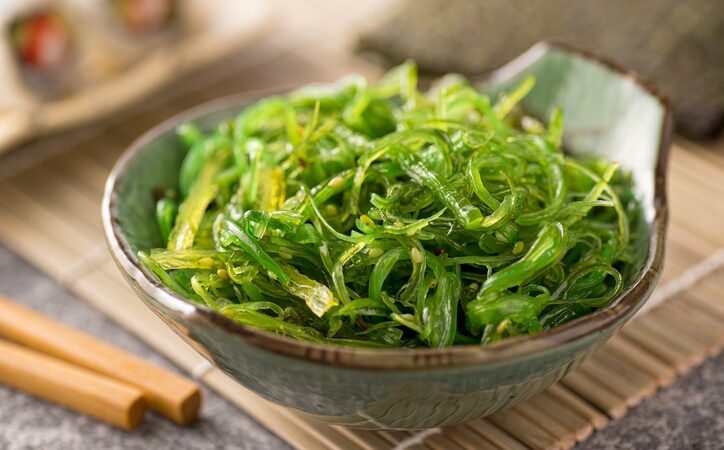The consumption of Seaweed –also known as sea vegetables or sea plants-has increased over the past several years due to the popularity that superfoods have gained. There is an increasing interest of people wanting to feel and look better, lose weight and have more energy.
While these plants have become more popular recently, Asians have consumed them for centuries. But thankfully people are waking up to the possibilities of how they can benefit from these miracle sea plants.
Superfoods such as seaweed are foods that provide essential nutrients by consuming small amounts on a regular basis. Consuming high quantities doesn’t make it better for your health, instead, like with all other foods, we must consume them in moderation for it to be beneficial to our health.
7 health benefits of seaweed:
- Sea vegetables are very nutrient dense; in fact, they contain more nutrients than any soil-grown vegetable. They are rich in vitamin A, C, D, E, B1, B2, phosphorous, potassium (this gives the plants its salty flavour, not the sodium as many suspect!), iron, iodine, fibre, sodium and small amounts of protein. All of these essential nutrients are easily absorbed by the body.
- They have plenty of calcium! Seaweed has up to 10 times more calcium than milk. This is probably the main reason why seaweed is considered to be a superfood.
- Sea water is very similar to the chemical composition of human blood. The regular consumption of seaweed in small quantities can help stabilize blood sugar levels, cleanse the intestinal tract, purify and alkalize the blood, cleanse the lymphatic system, re-balance hormones and help bind and remove heavy metals from the system. Powerful gifts from nature. The “acid alginate” in sea vegetables can even bind with radioactive material and successfully discharge it from the body.
- They have anti-viral, anti-inflammatory and immunomodulating properties; therefore, they strengthen the immune system and prevent numerous illnesses.
- They’re rich in iodine, a fundamental mineral for the thyroids and general health. The thyroids are one of the largest endocrine glands in the body and are responsible for a diversity of important processes in the body, such as the use of energy, creation of proteins, immune system function and our reaction to other forms of hormones, to name a few. Most frequently, thyroid problems are a result of a deficiency in iodine, as the body cannot produce iodine on its own and we rely on our diet to obtain it.
- They’re satiating, but do not cause weight-gain, therefore, they’re recommended to avoid being overweight or developing obesity.
- They have a chelating effect, which means that they have the capacity of absorbing toxins and heavy metals accumulated in the body and expelling them through the digestive tract.
The most popular types of seaweed are kombu, dulse, kelp, wakame, fukus and sea spaghetti. They can easily be found in specialised food stores.
Besides their versatility in food preparation, they add a unique colour and texture unlike any other foods. They can be added to the classic miso soup, vegetable soups, salads or as a side dish. They can also be consumed in powdered form, like spirulina and chlorella and added to smoothies.
Are you including sea vegetables in your diet? With all the benefits they offer, they’re a must-have for a balanced and healthy diet. Shop them now in our online boutique!
*Article written by Kenneth Prange, expert in healthy nutrition and natural therapies.

